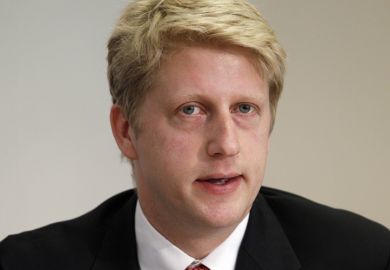With students making a substantial investment in their university education, it is easy to understand the government’s desire to quantify the value of the teaching they benefit from.
We can all get behind a mechanism that demonstrates the effectiveness of universities as vehicles through which to invest in the country’s future talent – particularly as we approach what is bound to be a bruising period of public spending cuts.
But there are a few hurdles that a teaching excellence framework must clear if it is to prove effective. First, it needs to measure the right things. It cannot be a superficial extension of the data provided through the Key Information Set, a variant on the Quality Assurance Agency’s higher education review or some rehash of the subject league tables that drive universities to offer higher and higher proportions of firsts and 2:1s.
It must be an evidenced reflection of the impact the university experience has on students, examining how a university supports students to push their academic limits and helps to set them on ambitious career paths, not just how well already successful students maintain their success.
At Aston University, we pride ourselves on supporting students in developing independent learning skills and on feeding research and enterprise engagement activity back into teaching. We are by no means alone in delivering such added value, but it is not something that is easily captured through a tally of contact hours, staff-to-student ratios and percentages of top degree grades.
Teaching, research and employability go hand in hand, each supporting the other; the best universities are the ones that understand and act on this.
Second, the TEF needs to make life easier rather than harder for university staff. It would be ironic if the time and resource needed to comply with a system actually detracts from the quality of the process it is designed to assess. One of the criticisms that can be made of the research excellence framework is that it does just this. The TEF needs to be the result of an overarching reform of the ways in which the quality of the entire student experience – not just classroom etiquette – is assessed.
This means that it is important to consider where the TEF would fit in relation to (or in place of) Key Information Sets, the National Student Survey and the Destination of Leavers from Higher Education survey. A tightly focused new assessment framework could reduce the current expensive, overlapping bureaucracy that institutions have to deal with. Could we adopt the Cabinet Office’s phrase and refer to this as our own “red tape challenge”?
Finally, the TEF needs to be meaningful. It must give recognition to the universities that offer students the most value and provide strong motivation for those that need to improve. The Budget announced plans to allow universities with high-quality teaching to raise fees in line with inflation. That is certainly an idea with some merit that warrants further investigation.
The “value” equation has two sides. It’s about the benefits and experience that students get, as well as about how much they pay. The expectation, when the Browne Review recommended the lifting of the fee cap, was that only universities offering the best-quality education would be permitted by the market to charge the highest rate.
But without a properly evidenced measure of that quality, students have not had all the information they need when making their decision. How can they know what the right price to pay for something is if its value is unclear? So we have been left with a system in which research reputations, marketing spend and a handful of “malleable measures” counted more than real “value add”.
Aligning fees with a quality assessment based on research evidence would build recognition of the long-term value for students. It could change the way universities are ranked and, more importantly, it could give more of our graduates a richer, more tailored experience – and a better start in their careers.
It wouldn’t be an easy option, but it would be an opportunity for Jo Johnson, the new minister for universities and science, to complete the task his predecessors left unfinished and truly put students at the heart of the system.
Dame Julia King is vice-chancellor of Aston University. This opinion piece forms part of a wider feature on the TEF.
Register to continue
Why register?
- Registration is free and only takes a moment
- Once registered, you can read 3 articles a month
- Sign up for our newsletter
Subscribe
Or subscribe for unlimited access to:
- Unlimited access to news, views, insights & reviews
- Digital editions
- Digital access to THE’s university and college rankings analysis
Already registered or a current subscriber?







